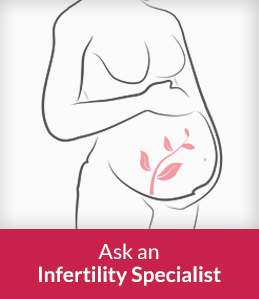A couple is considered infertile if there is no pregnancy after one year of unprotected intercourse between them. Infertility is classified as primary or secondary, depending on various factors like – previous history of pregnancy, menstrual cycle history, hormonal profile etc. History of pregnancy includes all pregnancies, even those that resulted in miscarriage or ectopic pregnancy.
Primary infertility is a case where a couple can never conceive a baby naturally.
Secondary Infertility describes a couple who are having trouble conceiving again, even though they have previously achieved pregnancy.
In some cases, both the man and woman maybe infertile or sub-fertile and the couple’s infertility may arise from the combination of conditions. In other cases, the cause is suspected to be immunological or genetic; it may be that each partner is independently fertile but the couple cannot conceive together without assistance.
UNEXPLAINED INFERTILITY
Despite proper checkup there is no certain cause of infertility in 15 to 20% of the couples which is called unexplained infertility.
Based on WHO (World Health Organization) approximately 8 to 10% of couples are suffering from infertility across the world. About 40% of the issues are involved with infertility are due to the male partners, another 40% due to female partners, and 20% result from complications with both partners.
- Infertility in married women ages 16 – 20 = 4.5%
- Infertility in married women ages 35 – 40 = 31.8%
- Infertility in married women over the age of 40 = 70%
Infertility treatments
When a woman fails to achieve the pregnancy in premenopausal period; then by using medication at specific time ovaries can be stimulated to release an egg for fertilization.
Other disease and treatments for natural conception
Proper treatment for any hormonal imbalance or deficiencies like thyroid disorder, prolactin, diabetes and/or blood pressure needs to be controlled.
If these deficiencies are cured it may lead to normal pregnancy as well.
Intra uterine insemination
Intrauterine Insemination (IUI) involves a laboratory procedure to separate fast moving sperms (sperms with better motility) and are placed into the woman’s womb close to the time of the ovulation when the egg is released from the ovary.
IVF (Invitro Fertilization)
It is a process in which eggs are fertilized by the sperms outside the body and then properly developed embryo/s is/are implanted inside the uterus at the proper day of the development stage of the embryo/s.
Fertilization
Firstly, some fertility drugs are prescribed and with the increased production of the eggs which are aspirated with the help of the fine needle and kept inside one dish. Then, the best quality of sperms are combined with the eggs and fertilized inside the dish and kept inside the incubator.
In the Invitro fertilization technique, following steps are included –
- Intra Cytoplasm Sperm Injection
- GIFT (Gamete Intrafallopain Tube Transfer)
- IMSI(Intra Cytoplasmic Morphological Sperm injection
- MESA(Microsurgical Epidermal Sperm Aspiration)
- TESA (Testicular Sperm Aspiration)
- Laser Assisted Hatching Embryo/ Blastocyst transfer/ Freezing/ Storage







,